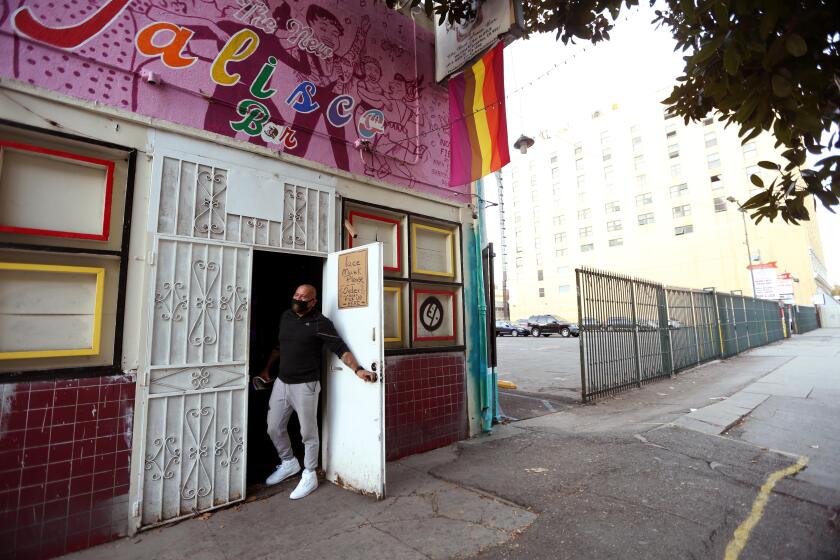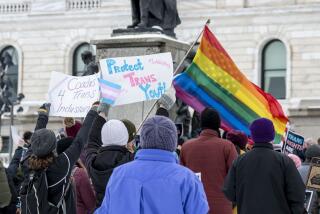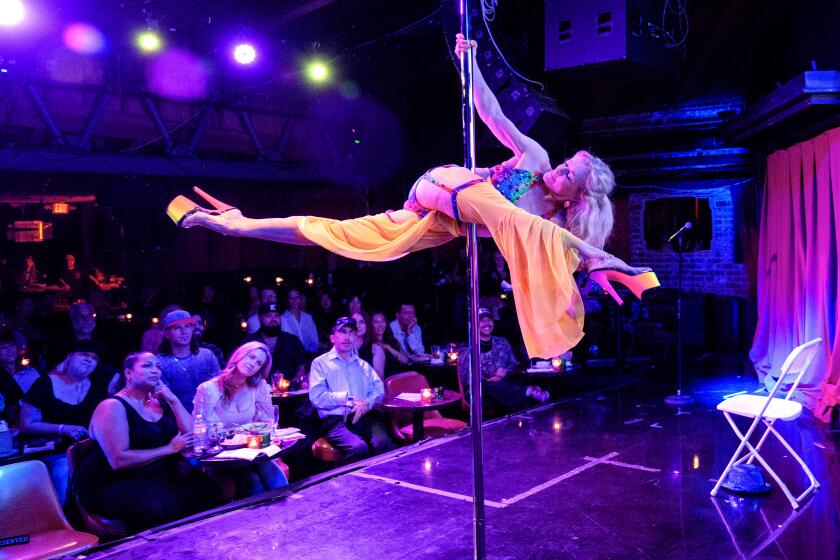A year at home has forced many LGBTQ college students ‘back into the closet’
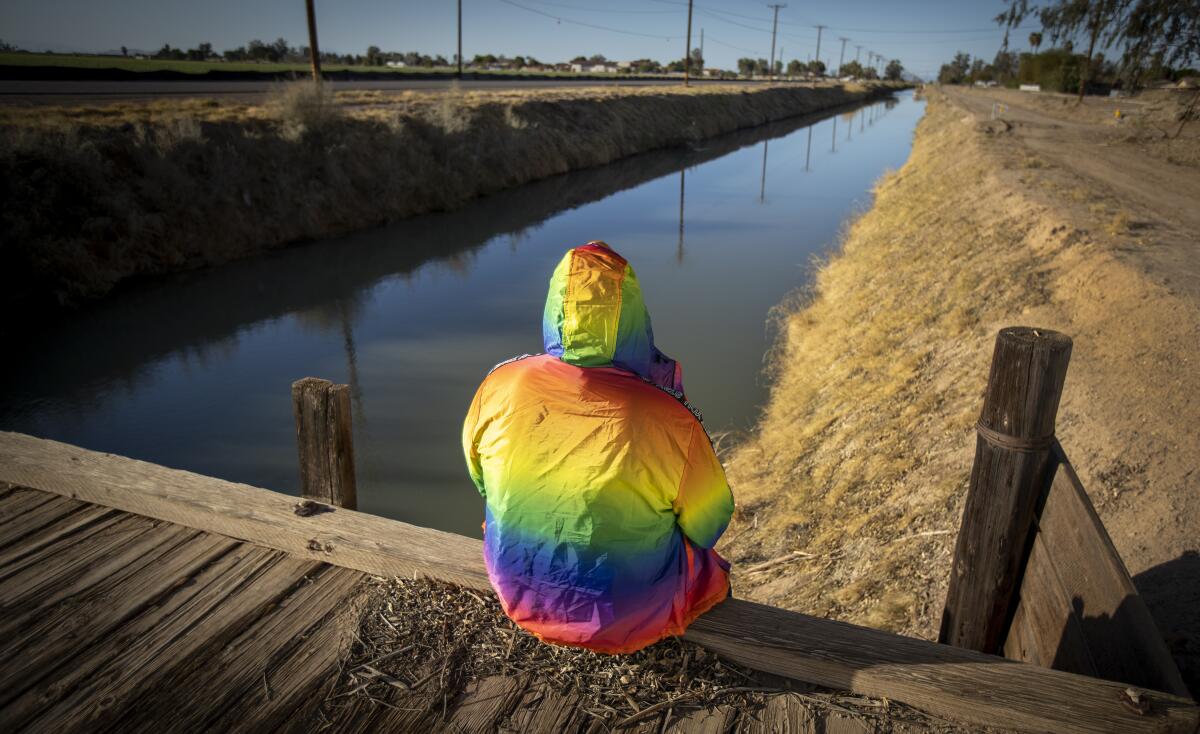
Enrique stepped into his childhood bedroom on March 12, 2020, and felt the crushing absence of all that he had gained while at college for the previous seven months.
The walls spoke of the nights he cried himself to sleep after he came out to his parents as a high school junior. “You’re not that kind of person,” they had told him. “It’s probably a phase.”
Enrique tore down his old “Dragon Ball Z” and “Sailor Moon” posters and rearranged his furniture to look more like his dorm room, but nothing could recapture the freedom he had felt at college. Now back home because of the COVID-19 pandemic, Enrique fell into a deep depression as he grappled with his parents’ unwillingness to acknowledge his queerness.
Enrique is expressive and theatrical by nature, and his college friends embraced those traits. But around his parents he is reserved and quiet — a return to how he behaved before leaving for college.
“It was like going back into the closet,” said the 19-year-old, who asked to be identified by a nickname for fear of harming his relationship with his family.
The forced homecoming of college students has been particularly painful for those whose families either do not know of or reject their LGBTQ identities, according to therapists, college staff and students themselves.
Many students went from experiencing the immense relief of independence and belonging to once again feeling trapped in an environment that threatens to unravel their hard-won self-confidence.
It was like going back into the closet
— Enrique
“For a lot of folks, college is the first time they can be open and honest about themselves and who they are, what they like, who they like,” said Sean Boileau, behavioral health services director for APLA Health, an L.A.-based nonprofit that provides healthcare to LGBTQ people.
Despite major shifts in public attitude toward LGBTQ people over recent years, many parents still struggle to affirm their queer and transgender children. According to a nationwide survey of LGBTQ college students by University of Maryland researchers, 30% said they heard their families make negative comments about LGBTQ people more often during the pandemic, and 35% said they lied to their families about their identities more often.
Since last March, Trans Lifeline, a crisis hotline for transgender people, has recorded an 18% jump in calls in which people talk about being rejected by their families. The number of people contacting the Trevor Project, a suicide hotline for LGBTQ youths, doubled at times in 2020.
Before Enrique went to college, he didn’t quite realize how stifling it was to live at home — first as a teenager who hid his queerness and then as someone whose parents acted as if this part of him didn’t exist.
If you or someone you know is exhibiting warning signs of suicide, seek help from a professional by calling the National Suicide Prevention Lifeline at (800) 273-TALK (8255). You can reach Trans Lifeline at (877) 565-8860 and the Trevor Project at (866) 488-7386.
When he moved to a University of California campus in Southern California, he quickly came out to his new friends. They loved the parts of him that he feared his parents would label as “flamboyance.” He met a guy he liked and they dated briefly.
He began dressing like the male models he saw on Instagram — three-quarter-length pants, turtlenecks and silver chain bracelets. For the first time in his life, he felt like his outside matched his inside.
When Enrique first learned that campus was closing last year, he thought: “This will probably be over by May. I’ll be OK.”
But one month at home turned into two, then three. Then there was no end in sight. Now, even as counties are reopening, UC classes are online and university residences remain at a fraction of occupancy.
Enrique said his parents disparaged his sexuality in subtle ways, like when he wore a bright color-blocked outfit. “You look ... ,” Enrique’s mom said, her voice trailing off as she gestured with a limp wrist. Or when his dad insinuated that Enrique’s younger brother would have children but Enrique would not.
By the fall, Enrique said, he was struggling with substance abuse and suicidal thoughts. He’d felt depressed before, when he was coming to terms with his sexuality, but he had never wanted to harm himself. He slept away the hours he was not logged onto Zoom for classes. In retrospect, he attributes his depression to the shame he felt around his parents.
Escalating mental health risks
Mental health experts say that even subtle forms of rejection can leave an indelible mark on an LGBTQ young person.
Research from the Family Acceptance Project, a San Francisco State University-based program that works with LGBTQ youths and their families, revealed something striking: Teens whose parents responded to their identity with moderate levels of rejecting behaviors are three times more likely to experience high levels of clinical depression as young adults when compared with peers who were not rejected. This risk doubles for teens who were highly rejected by their parents.
Parents can express rejection in many ways: by not talking about their children’s identities, not letting them have LGBTQ friends, and disallowing participation in LGBTQ support services or events.
“Parents that are engaging in these behaviors typically think they are helping their children have a good life, that this will keep their family together,” said Caitlin Ryan, director of the Family Acceptance Project. In fact, she said, “their child is experiencing those behaviors as not only harmful but often traumatic.”
Gay bars survived the AIDS crisis, oppression and recessions, but the pandemic is driving bars out of business nationwide, especially those catering to people of color.
Queer or transgender young adults who faced a lot of rejection — perhaps disowned or physically or emotionally abused by their caregivers — are eight times more likely than their accepted peers to attempt suicide, research shows.
LGBTQ college students spending breaks with families who do not affirm their sexual or gender identity is nothing new. But the stresses of the pandemic — the isolation and duration — have been different, counselors said.
“When I would work with folks going home for spring or summer break, we would create safety plans. If their family was attacking them verbally, if they were feeling overwhelmed, they knew they could go to this friend’s house, this library, this coffee shop,” said Tiffany O’Shaughnessy, a counseling professor at San Francisco State.
A crushed spirit
A University of Missouri student, Afua Owusu-Agyeman, lived with her parents from March until fall after the university shut down.
When she came out as queer her senior year of high school, Owusu-Agyeman’s mother replied, “No, you’re not,” and made her promise not to tell anyone else in the family.
At Missouri, Owusu-Agyeman’s accepting friends made her feel as though her “soul was being cradled,” but back home the silence around her queerness intensified as the pandemic wore on.
She tried to sign up for university counseling, but increased demand meant waiting months for an appointment. She called a suicide hotline almost every night.
“I don’t think it can be underestimated how much that this can crush your spirit,” Owusu-Agyeman said, “being told every day that it is not OK to be yourself.”
Diane Kubrin, director of mental health services at the Los Angeles LGBT Center, said one of her transgender therapy clients was disowned after they came home during the pandemic dressed in a way that aligned with their gender identity. Shaun Travers, director of UC San Diego’s LGBT Resource Center, said he met with three queer and trans students who were kicked out of their homes over the last year because of their identities.
Living at home has been especially distressing for nonbinary and transgender students whose family members may purposely or unintentionally call them by the wrong pronouns or “deadname” them — using the name they were given before they transitioned. This can cause great emotional distress known as gender dysphoria, according to therapists.
This was the case for Jasper, a nonbinary college freshman in North Carolina. Jasper, 19, lived on campus last fall — a time when he could “just exist without people questioning” his gender presentation. He returned home during the winter coronavirus surge.
“My parents never use my correct pronouns and I doubt they ever will. They always use my birth name,” said Jasper, who has asked to be identified by his first name for fear of reprisal from his family. “It’s death by a thousand tiny cuts.”
For teens and young adults who are financially dependent on their parents, maintaining a connection — however fraught — and keeping the peace carries extra weight.
Jasper’s parents have threatened to remove him from the family health insurance plan if he pursued a medical transition.
“The two people who should always be on my team are the only people not on my team at this point,” said Jasper, whose mental health has greatly improved since returning to campus in February.
Secrecy is its own health hazard
For many LGBTQ students, hiding their authentic selves from family members is a “health hazard” that can cause anxiety, depression, self-harm and internalized transphobia and homophobia, said Ryan of the Family Acceptance Project.
“One wrong slip of the tongue suddenly can take away the one thing you have left — physical safety and security,” said Boileau of APLA Health.
Students who aren’t out at home are also the least likely to access virtual mental health services, counselors said. And those who do seek support often do so in fear, talking in code with their therapists or logging into therapy sessions from their cars, where they won’t be overheard.
Eliza, a nonbinary and queer junior at UC Berkeley who asked to be identified by their nickname, is not out to their parents; Eliza moved back into their Los Angeles County home during the pandemic. When Eliza has tried to buy men’s clothing, their mom has balked — so they present more feminine at home. Eliza tries not to wince when their parents unwittingly misgender them.
“They’ll say things like, ‘I’m not transphobic, but I would never wish for my kid to be trans,’” Eliza said. They do not mean it maliciously, Eliza said, but it stings.
Eliza has not come out at home because they are trying to protect their relationship not only with their parents but also with their extended Taiwanese family members, who think of queerness as a result of Americanization.
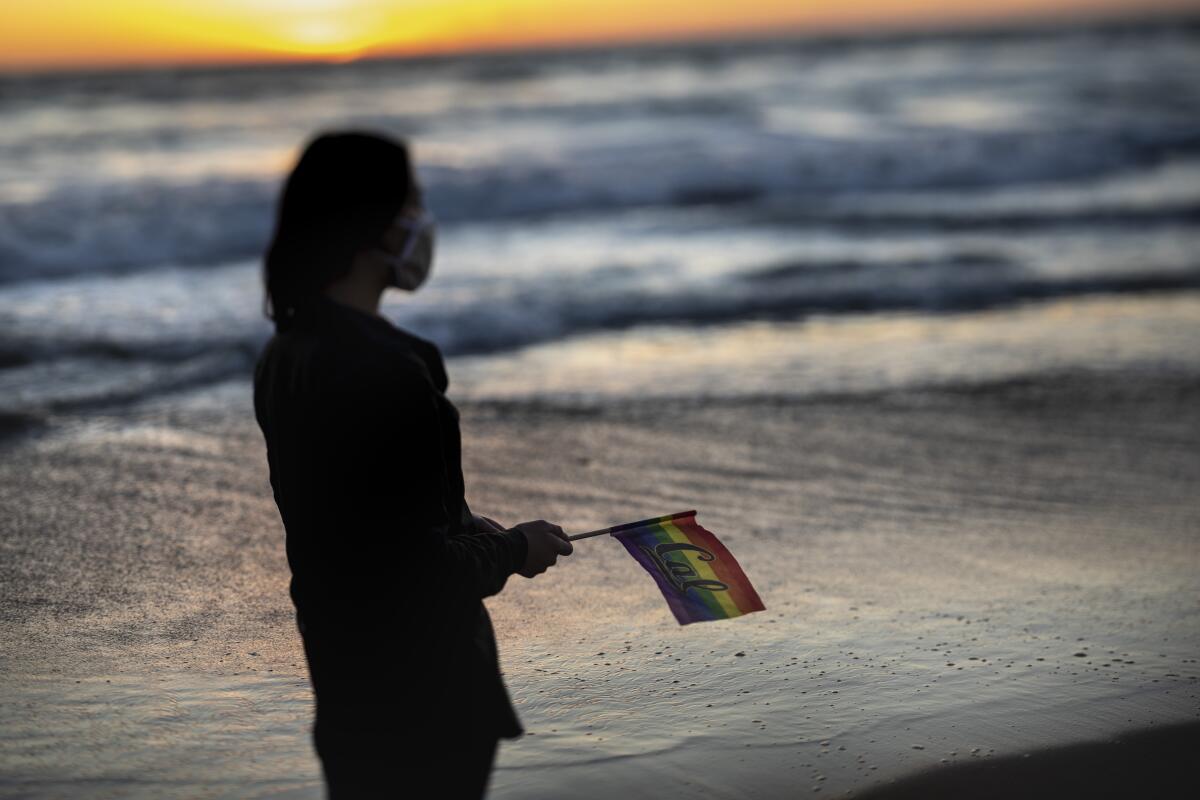
Eliza regularly hides their involvement with UC Berkeley’s LGBTQ groups. “Why do you have so many meetings?” their parents ask. “What are they for?” Eliza will change the subject.
“There is a part of me that wishes I could celebrate who I am with my family,” Eliza said.
For Enrique, the gulf between himself and his parents grew as the pandemic dragged on. His parents’ attempts at closeness felt inauthentic, so he created distance. If his mom leaned in for a hug, he pushed her away.
One day last fall, Enrique found the courage to talk about moving back to his college town even though classes were still online.
“We love you, we want to keep you here,” his mom said. “Why would you want to leave?”
Enrique couldn’t bring himself to say that they were the problem. But he suspects they knew. Ultimately, he decided to stay home and is still there.
Recently, Enrique’s parents have started to acknowledge his queerness in small ways. “How’s my outfit?” his mom asks him before going to the grocery store. “What do you think of these shoes?”
It’s not much, he said. But it’s a start.
More to Read
Sign up for Essential California
The most important California stories and recommendations in your inbox every morning.
You may occasionally receive promotional content from the Los Angeles Times.
